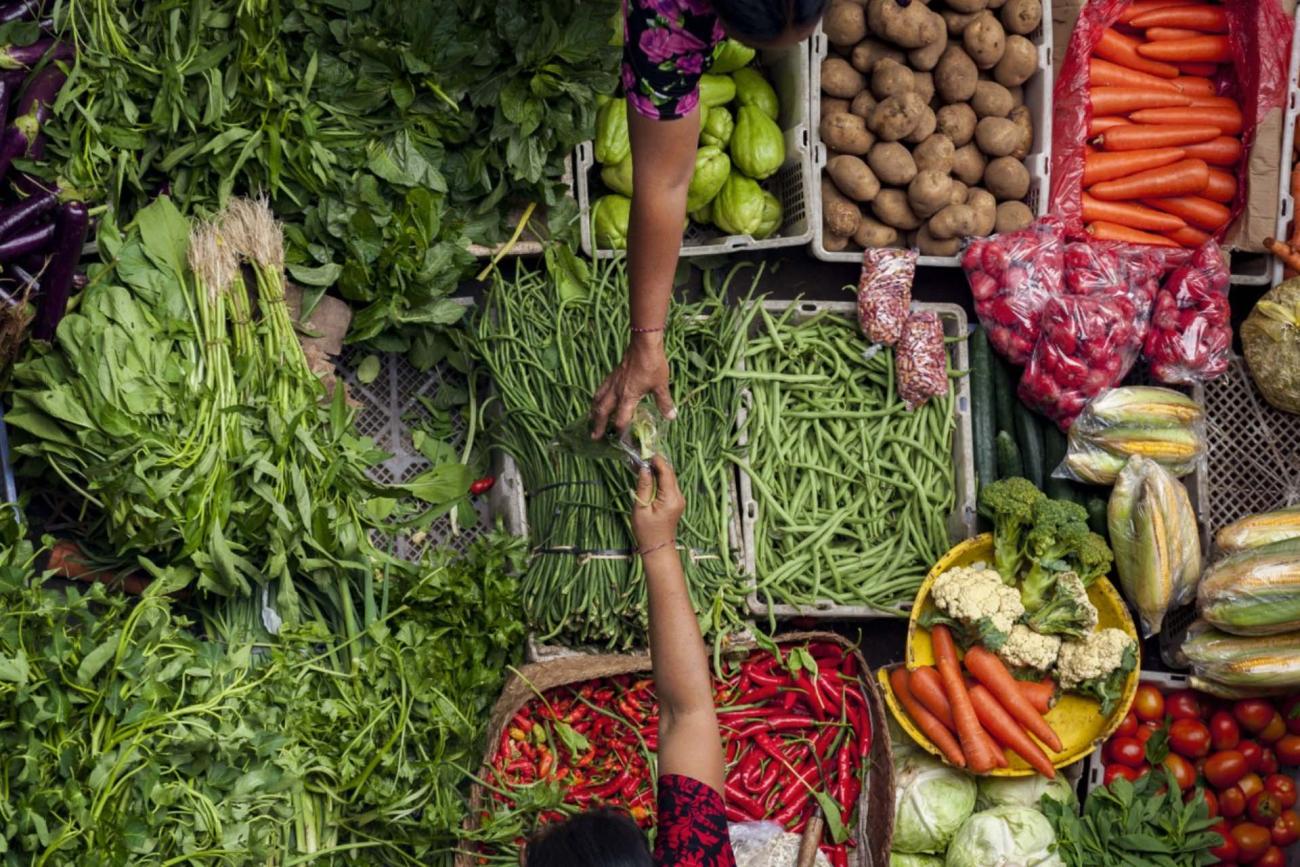Indonesia Launches Southeast Asia’s First SDG Bond to Bring Agenda 2030 Back on Track

The Bond, which raised EUR 500 million, will enable the government to finance social and environmental projects to support the SDGs.
Indonesia's recent issuance of a Sustainable Development Goals (SDG) Bond reflects the country’s leap forward in tapping innovative sources of financing to fund projects that benefit communities and the environment, according to top UN and Indonesian Government officials.
In September Indonesia became the first country in Southeast Asia to issue an SDG Bond in the global debt capital market, raising EUR 500 million (USD 584 million). The Bond will enable the government to finance social and environmental projects, further demonstrating its commitment to the SDGs.
“The SDG Bond demonstrates the Government of Indonesia’s commitment in accelerating the achievement of SDGs, despite the financial constraints caused by the COVID-19 pandemic. This move also highlights our innovative and forward-thinking approach to raise new funds for SDGs projects and keep us on track for the final 9-year sprint towards 2030,” said the Director General of Budget Financing and Risk Management, of Ministry of Finance, Luky Alfirman.
Indonesia is a growing economic powerhouse in the Asia-Pacific region, and it is a member of the G-20.Despite having experienced robust growth prior to the pandemic, the country has been confronted with issues related to inequality and poverty. The SDG bond provides an alternative source of financing for Indonesia to fast-track achievement of the SDGs, particularly in light of the pandemic.
“The COVID-19 pandemic set back much of Indonesia's hard-won progress on poverty alleviation and diverted a large portion of the country’s public resources to handling the crisis,” says UN Resident Coordinator for Indonesia Valerie Julliand. “Indonesia’s issuance of an SDG Bond is an example of the country’s ambitious embrace of innovative financing as a means to make up the deficit and maintain its commitment to leaving no one behind.”
Prior to the issuance, the Government of Indonesia created a securities framework to ensure that the proceeds of the SDG Bond are directed to the most appropriate projects. The Framework—which was developed by the Ministry of Finance, in collaboration with the Ministry of National Development Planning (BAPPENAS), the Coordinating Ministry of Maritime and Investments, with support from UNDP, HSBC and Credit Agricole—includes project selection criteria such as indicators to ensure that proceeds are allocated to projects with long-term impacts.
As part of a globally recognized external review process, CICERO and IISD subjected the framework to a verification process to ensure it met the highest international standards. The reviewers classified the framework as “Medium Green”, citing its strong outlook for medium-to-long-term green development, and gave a “Good” rating to the framework’s overall governance.
UNDP worked in partnership with the Ministry of Finance during all stages of the technical aspects of SDG Bond’s issuance. This collaboration included developing a feasibility study and the securities framework as well as supporting the verification process.
“The SDG Bond provide an innovative form of funding that can trigger more financing for socially and environmentally conscious projects. UNDP is honored to have been part of this milestone with the Government of Indonesia and we look forward to seeing the concrete results of the proceeds which can better protect our planet and improve the lives of millions of Indonesians,” said UNDP Indonesia Resident Representative, Norimasa Shimomura.
UNDP Indonesia was the first UNDP Country Office to develop innovative sustainable debt instruments when it supported the Indonesian Government’s creation of the world’s first ‘Green Sukuk’, issued in 2018. Proceeds from the Green Sukuk were used to fund initiatives on climate change mitigation and other projects to advance the SDGs. Following this success, UNDP Mexico then supported the Government of Mexico in issuing its first SDG Bond in 2020 and 2021, and UNDP Uzbekistan in issuing the country’s first SDG Bond in July 2021.
UNDP’s support is part of a UN Joint Programme on Accelerating SDGs Investment in Indonesia (ASSIST), alongside the United Nations Children's Emergency Fund (UNICEF), the United Nations Environment Programme (UNEP) and the United Nations Industrial Development Organization (UNIDO). It aims to support the Government of Indonesia in meeting its SDGs targets by scaling up proven and new financing instruments (thematic bonds, impact funds, and SDG-linked loans) and developing the capacities of key stakeholders. The Joint Programme is funded by the Joint SDG Fund, and with contributions from the following donor countries: Denmark, the European Union, Germany, Ireland, Luxembourg, Monaco, the Netherlands, Norway, Portugal, Spain, Sweden, and Switzerland.
-
More information about the Indonesia SDG Bond issuance can be found via the Ministry of Finance’s official website.
-
For further information:
Tomi Soetjipto, UNDP Communication Specialist, suryo.tomi@undp.org
Muhammad Didi Hardiana, Head of UNDP Innovative Financing Lab, muhammad.hardiana@undp.org
Afke Bootsman, Head of UN Resident Coordinator’s Office, afke.bootsman@un.org



